Performance Review: Outlining Over Forty Years of Musical Development
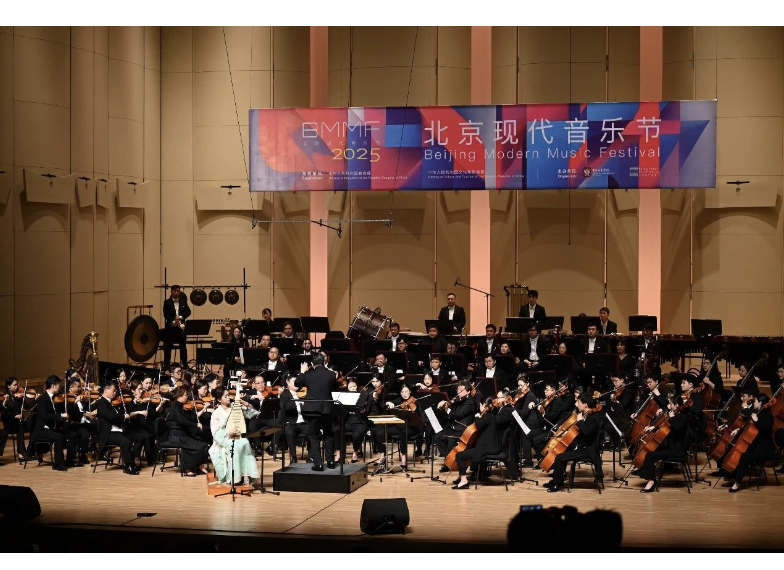
On the quiet evening of May 19th, the Opera and Concert Hall of the Central Conservatory of Music surged with waves of music. A concert titled "Concert of Contemporary Chinese Symphonic Works" was grandly performed here, with Li Jingzhan conducting the Central Conservatory of Music Symphony Orchestra in six new symphonic works by six composers, sketching a microcosm of over forty years of development in Chinese contemporary music.
From Xiaogang YE, representing the "legendary" 77/78 composition class, to Hao Weiya, who further propelled the "avant-garde" turn in Chinese music, and then to Yao Chen, Xu Zhitong, Zou Hang, and Zhang Shuai – young composers active on the international stage in recent years – this concert brought together the artistic explorations and spiritual heritage of several generations of composers from the Central Conservatory of Music. It witnessed the journey of Chinese contemporary music from its early styles towards diversity, and from local expression towards a global vocabulary.
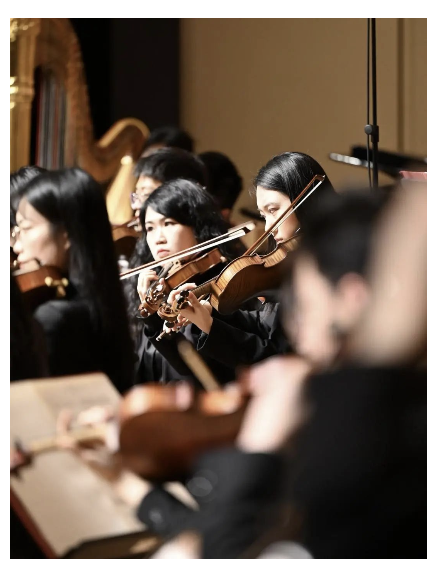
Notably, five of the six works performed that night were in the concerto genre, three of which featured traditional Chinese instruments as soloists. This not only reflected the composers' breakthroughs and innovations in structure and instrumentation but also mirrored an increasingly clear cultural choice in contemporary Chinese music creation: to renew musical language and seek new narrative possibilities through the inheritance of national traditions. In this prestigious musical sanctuary, the audience could not only enjoy exquisite music but also feel the profound heritage and relentless exploration of the Central Conservatory of Music as one of the "wellsprings" of Chinese contemporary music.
Yao Chen's "Garden Veils" (2021), as the opening piece of the concert, truly fulfilled the role of a "symphonic overture." "Garden Veils" continues the subtle, light, and far-reaching imagery recurrent in Yao Chen's works, but this literati temperament and pursuit are not merely confined to the title or artistic conception; they are transformed into the spiritual core of his music. In this work, although "garden" directly refers to Suzhou gardens, it metaphorically alludes to a spiritual homeland. Just as the regional appearance of the "garden" and its underlying universal significance, Yao Chen's musical style has never been confined to a specific cultural time and space but rather comprehends and embraces different musical traditions with an "internationalist humanistic stance."
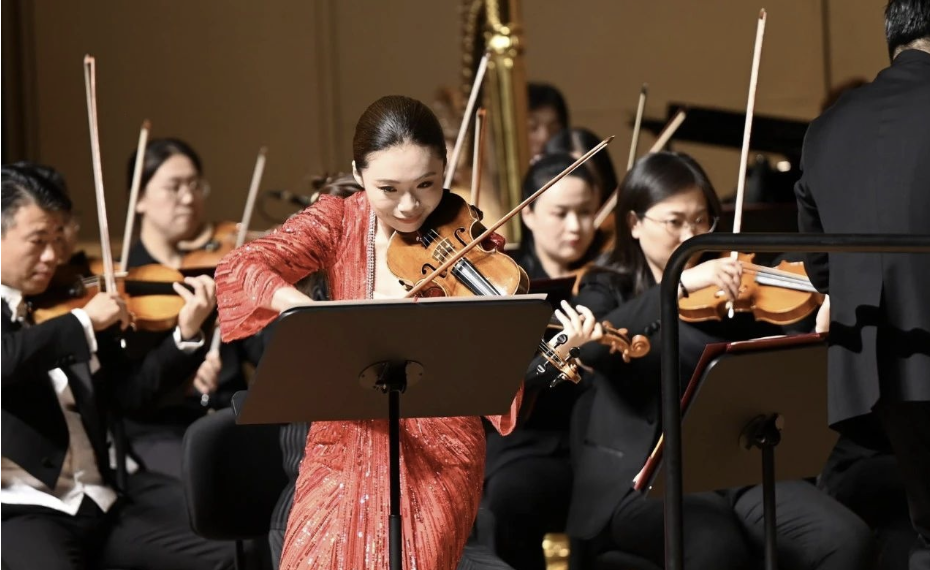
In "Garden Veils," Yao Chen's literati core manifests as a metaphysical nostalgia and a romantic pursuit of the spiritual homeland, "knowing it's unattainable yet striving for it." Therefore, despite frequent modal shifts and rich orchestral colors creating an Impressionistic-like palette, the musical logic of the work, as the composer stated, "is not imagistic or impressionistic, but emphasizes the 'interest and momentum of creation'": fragmented, short musical ideas continuously accumulate emotional energy in their development, blossoming into broad, lyrical melodies. The sonic layers of different sections gradually stack up, ultimately achieving spiritual sublimation in a magnificent climax. The entire piece concludes on C and its dreamlike, ethereal, and gently ethereal harmonics, as if dissipating like smoke, or returning to an origin, intriguingly suggesting an unfinished quest and an open space for interpretation.
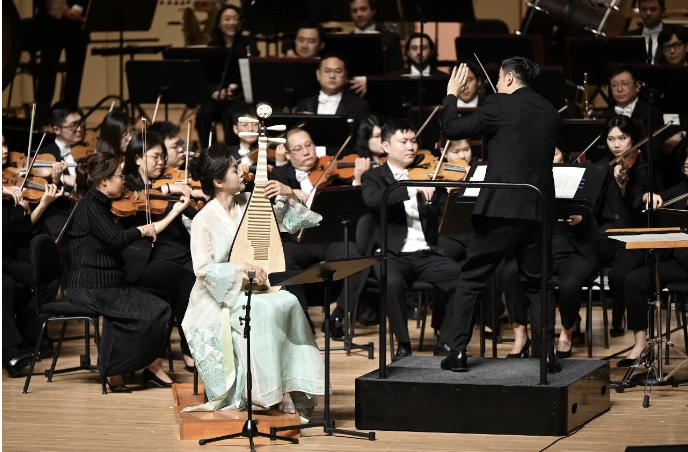
Xu Zhitong's "A City of Books and a Port to the World" (2022) draws inspiration from Ningbo city's promotional theme, "Books store the past and present, a port to the world," showcasing the port city's profound cultural heritage and colorful local customs through musical art. The work creatively integrates the genres of symphonic suite and concerto, with each movement featuring a different solo or principal instrument to present Ningbo's multifaceted appearance and development across different eras. The second movement, "Nine Thoroughfares, Three Markets," and the third movement, "Abundant Waters," performed at this concert, featured violin and pipa as solo instruments respectively, depicting the bustling prosperity of the port and the rich, colorful daily life of the people of Yongcheng (Ningbo). These two movements are positioned between the first movement, "People of the First Farmers," and the fourth movement, "Digital Age," connecting the ancient past with the present in the timeline.
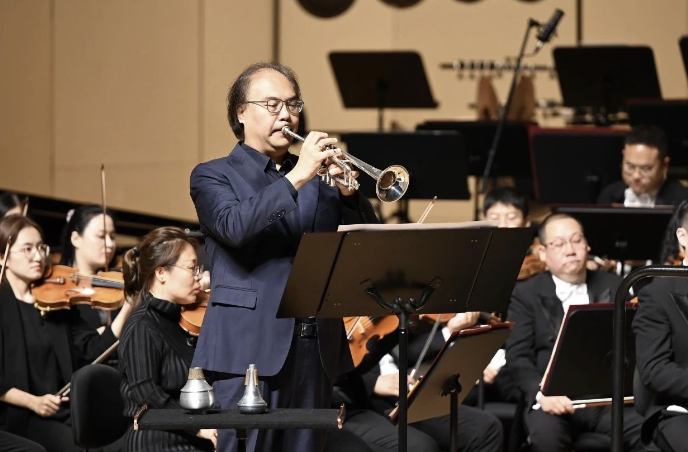
"A City of Books and a Port to the World" integrates pentatonic Yue Opera melodies, Horse Lantern Tune motifs with diatonic scales and chromatic harmony, exhibiting distinct regional colors and an open cultural vision. The violin's virtuosic solo passages shone brightly under Wang Jiajing's bow. Pipa player Lan Weiwei, known for her outstanding interpretations of contemporary works, also precisely grasped the multifaceted character of the pipa part in this piece: its timbre sometimes emerged from a gentle string harmonic background, and at other times, its granular timbre intertwined and merged with percussion and string pizzicato, adding a unique texture to the music. National melodies and Western genres permeated each other within the composer's mature language, jointly painting a warm and vivid folk tableau.
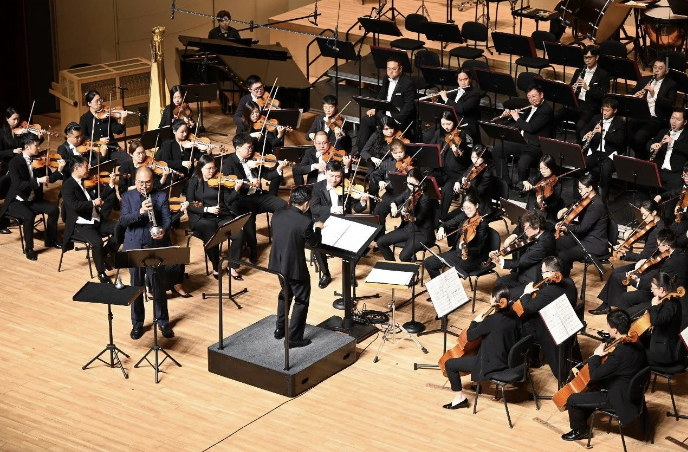
Xiaogang YE's "Memories of Jinggang Mountains" (2019) is the slow movement of the viola concerto "Sketches of Jinggang Mountains." The work affectionately looks back at the glorious history of the Jinggang Mountains, embodying the composer's respect for the revolutionary spirit and his personal sense of national responsibility. "Memories of Jinggang Mountains" opens with a third-based motive of ambiguous tonality; the contrapuntal material formed by A–C and G–♭B is highly tense, creating a stark contrast with the subsequently appearing lyrical pentatonic melody. This confrontation gradually transforms into fusion during development. The warm pentatonic tones under the fingertips of viola soloist Su Zhen assimilate the dissonant third motive, like a spiritual journey from darkness to light.
The work abounds with symbolic sound design, such as the horn-like trumpet motives and the galloping rhythmic patterns, evoking associations with military imagery and responding to the historical memory of the Jinggang Mountains struggle. All this coalesces into the work's spiritual core: the inscription of the belief that "a single spark can start a prairie fire." Xiaogang YE, with his consistently superb orchestral language and profound classical foundation, transforms historical memory and the spirit of the age into a musical narrative of emotional depth and structural tension, by no means empty political propaganda, but a "red classic" genuinely born from inner emotion and humanistic care.
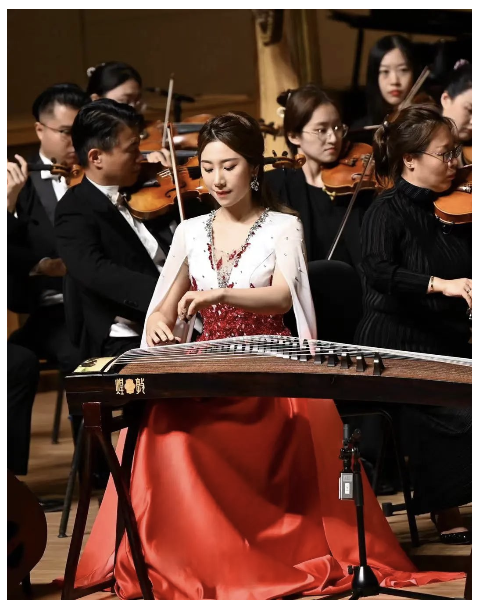
The second half opened with the most recently composed work of the concert—Hao Weiya's "Moments of Beijing" (2025). This is a fantasia for trumpet and orchestra, depicting a futuristic vision of Beijing. The work is thoroughly modern, focusing on the exploration of sound and structure. The orchestral texture is predominantly staccato in the woodwinds and percussion, in line with the fresh and cool sound quality of the composer's recent work, "Train to the Snow Country."
In "Moments of Beijing," the improvisational characteristics of the trumpet within the jazz tradition aptly correspond to the free development found in the fantasia genre. Performer Chen Guang outstandingly interpreted the rich and varied material characteristics of the trumpet part—from exotic minor second-augmented second scale patterns, to clear arpeggiated triads, to folk-inflected G-C-D scale patterns, and even including a strong jazz effect created using a wah-wah pedal. The diversity and flexibility of its musical language fully embodied a free fantasy, as well as the multifaceted nature of Beijing as a modern metropolis with a profound historical heritage. The work ultimately concludes on B-flat, a common key for the trumpet, further highlighting the trumpet's central role throughout the piece.
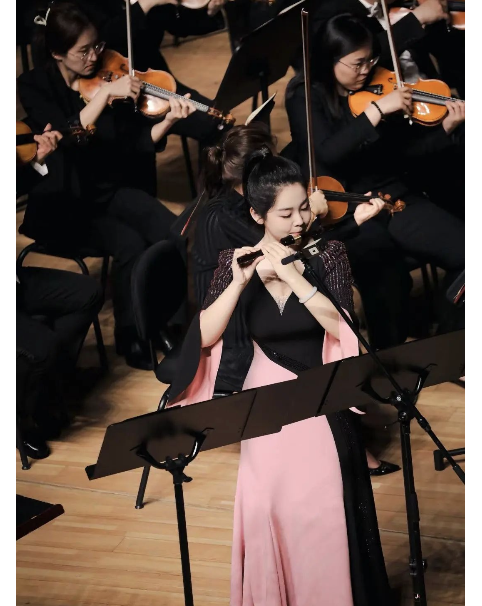
Zou Hang's guzheng concerto "Verdant Hills in Clouds and Rain" (2021) takes its meaning from the lines of Tang Dynasty poet Wang Changling's "Farewell to Imperial Attendant Chai": "Verdant hills share the same clouds and rain; has the bright moon ever known two hometowns?" This imagery contains a profound emotional connection that transcends spatial separation and also sets a tone for the work that is both poetic and philosophical. The entire piece is divided into two movements: "Qing" (Verdure/Green) and "Shan" (Mountain), forming a contrast in structure and temperament, constituting a soundscape as flowing and concrete as a landscape painting.
The first movement, "Qing," opens with distant, ancient-sounding bell chimes, rendering an ethereal and tranquil atmosphere. Guzheng harmonics blend with the orchestra's static chords, while flowing arpeggios and intermittently interspersed clarinet solo melodies endow this movement with an elegant, subtle, and profound literati atmosphere. The second movement, "Shan," undergoes a dramatic change in character. Material with continuous leaps, evoking a sense of majestic steepness, and stepwise material developed from single-note repetitions confront each other, forming a multi-dimensional narrative with a strong sense of space, as if "appearing as a mountain range from one angle and a peak from another," showcasing the different facets and forms of the mountain. Subsequently, the majestic leaping theme reappears in a grander sonic form, the orchestration gradually becoming fuller, with the violin section continually ascending, ultimately pushing the musical emotion to its peak in an explosive conclusion in the high register. Zou Hang, with his exquisite conception and delicate auditory imagination, transforms the poetic imagery of "verdant hills share the same clouds and rain" into a musical connection that transcends geographical boundaries. Cui Shan's brilliant guzheng solo showcased this poetry to the fullest, allowing listeners to feel the resonance of traditional artistic conception in contemporary expression.
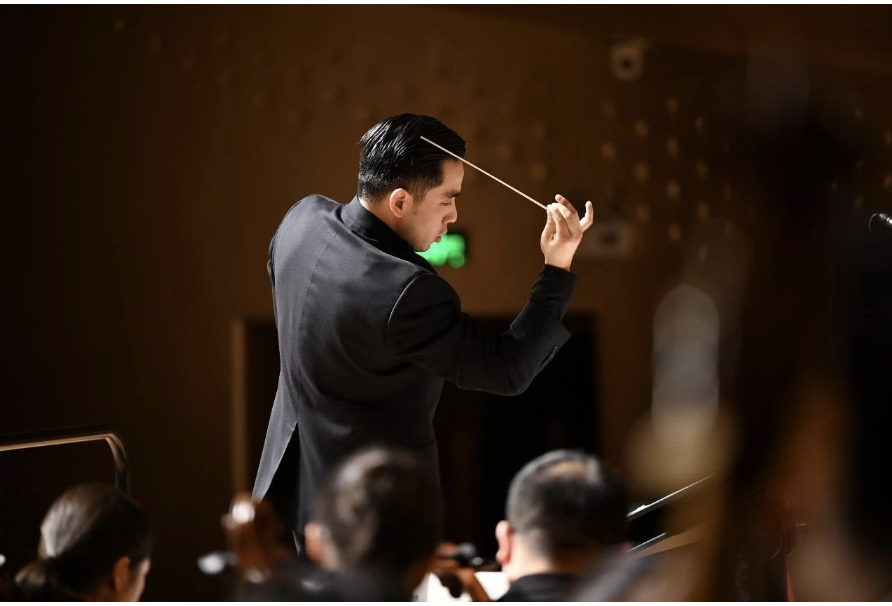
The concert reached a joyful conclusion with Zhang Shuai's "Xi Xi Xi" (2018, also known as "Panda Suite") for bamboo flute and symphony orchestra. This three-movement concerto places the bamboo flute within a large symphonic ensemble, using the clever metaphor of bamboo flute - bamboo - bamboo culture to elevate the musical expressive intent from the endearing charm of the panda to the inner spirit of Chinese literati. The bamboo flute, as the solo instrument, employed almost all its advanced techniques: flutter-tongued trills, harmonics, the altissimo register, and circular breathing. Xiong Xiaohan's highly dynamic performance not only perfectly captured the work's soaring spirit but also became one of the most memorable highlights of the entire concert.
"Xi Xi Xi" fully reflects the uninhibited attitude of the younger generation of composers, daring to embrace all possibilities, while the Chinese traditional instrument, as the protagonist, demonstrates astonishing adaptability in the composer's flexible exploration of styles. In the third part of the work, the musical style reached a pinnacle of diversification, flexibly switching between atonal melodies, jazz harmonies, polyphonic imitation, and popular idioms, creating a free tension that roams between traditional and modern, national and global, serious and popular. The juxtaposition of diverse styles in the work displays an inclusive, open, and confident cultural atmosphere, also reflecting the vigorously advancing spirit of Chinese contemporary music.
The works in this concert formed a clear line of generational inheritance. Xiaogang YE, as a representative figure of the 77/78 composition class, demonstrates profound classical cultivation and highly condensed national expression through the deep contemplation of history and spirit in his works. The creations of "post-70s" composers like Hao Weiya, on the other hand, embody a conscious awareness of fusion within a personalized language: East and West, traditional and modern, commonality and individuality are not binary opposites in their works but are flexibly harmonized into an organic whole.
Meanwhile, the traditional Chinese literati spirit finds varied echoes in their music: in Yao Chen's works, the literati temperament is sublimated into a metaphysical pursuit of a spiritual homeland; Zou Hang transforms it into a poetic, landscape-like auditory tableau; while Zhang Shuai, in a lighthearted, unrestrained, and all-encompassing manner, endows the bamboo flute, and indeed the entire work, with a literati-esque detachment and agility. In the contemporary context of diversity and fusion, these works not only represent new directions for Chinese contemporary music but also reveal Chinese composers' deep reflection on and creative response to their own cultural identity.
Executive Director | Guo Hai'ou
Executive Assistants | Zhang Shuhao, Yin Nan
Copywriter | Fan Yueqing
Photographers | Zhang Yaxuan, Zhang Yibin
